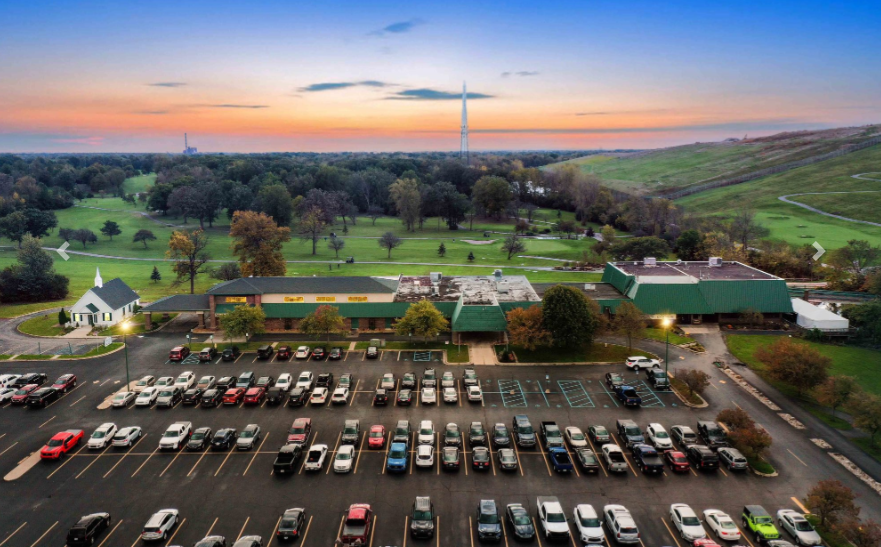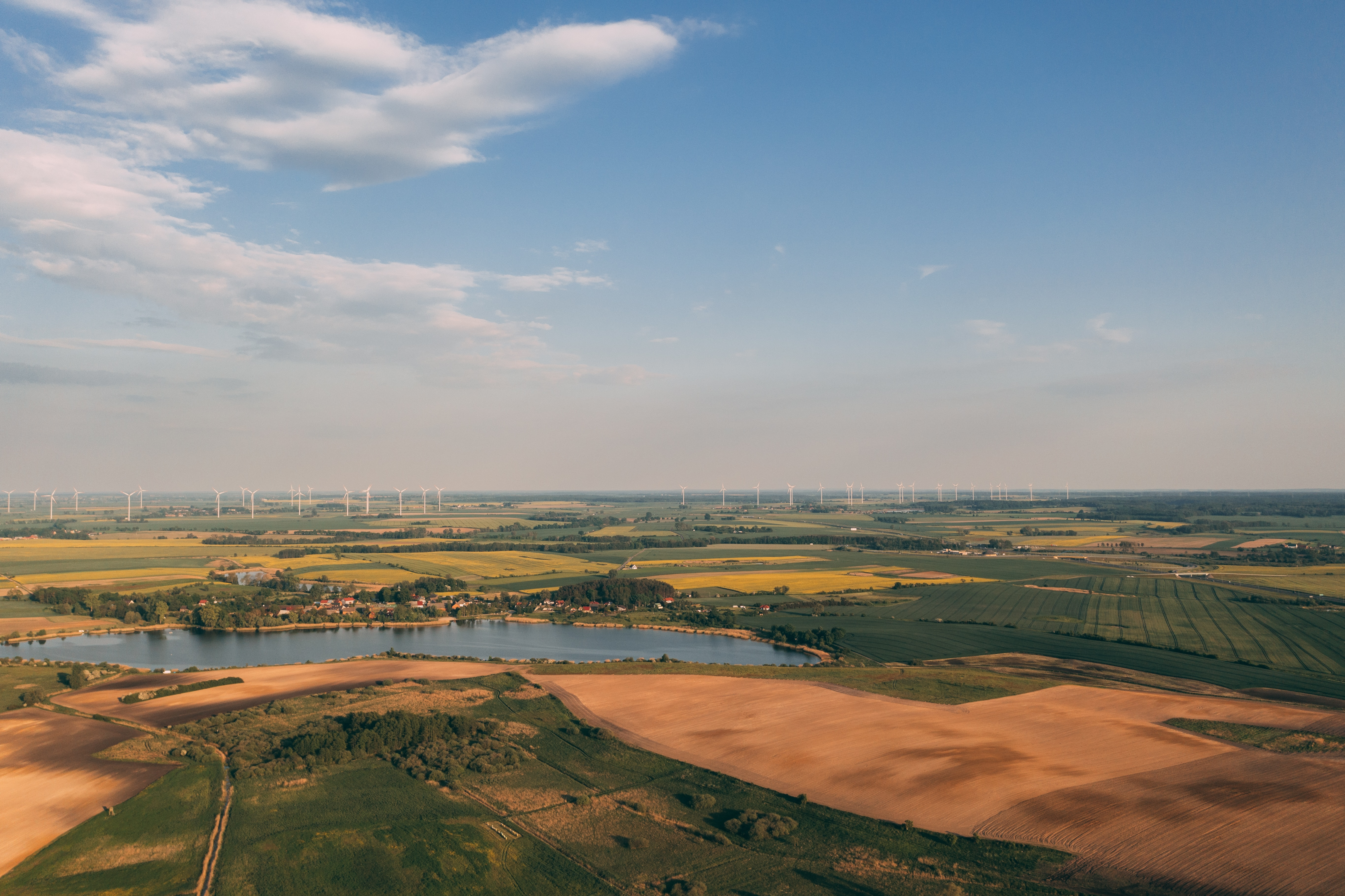
Important Considerations When Buying Commercial Land
October 4, 2019
Whether you’re expanding your company’s operations, building a brand-new business from scratch or looking for a new investment, finding, buying and developing commercial land is a valuable proposition that is widely perceived as a sign of organizational success and market value.
Buying commercially zoned land isn’t something to jump head-first into. The entire process should involve meticulous research, planning and consideration to ensure you’re getting the perfect parcel to suit your particular needs.
As one of the Midwest’s leading full-service real estate firms, Farbman Group has decades of proven experience in real estate development, financing, and site selection. To help you make the best decision possible, we put together a few important points you should consider when buying commercial land.
Commercial Property Zoning Laws and Regulations

Zoning is the first and most important thing you should think about when buying land, as zoning laws, regulations and ordinances set by the city will greatly affect your future business plans. For instance, plans to build a commercial or office building may not work out if the land is zoned for residential or industrial use.
Aside from the type of property you can build on the land, zoning also affects matters such as:
- Noise levels
- Business signage
- Parking regulations
- Waste management
- Location on utility lines
- Size and height of buildings
In cases where zoning is not attuned to the needs of your business, you don’t need to give up right away. If your heart is set on a specific property that’s not zoned properly, it’s best to have an experienced commercial real estate broker like Farbman Group negotiate a contract contingent on re-zoning the land or getting a variance allowing you to deviate from the rules set by the city. In many cases, this can be avoided entirely by using a broker who identifies land that checks all the boxes you’re looking for.
Accessibility of Commercial Real Estate
When building on commercial land, it’s vital to ensure it will be able to fit any future expansion and accessibility needs. For instance, would there be room to add additional parking? Are you able to add extra ingress and egress? Is it easy to reach major freeways? Can construction equipment easily enter and exit the site during construction?
Depending on your plans for future development, “location, location, location” doesn’t have to be the foremost deciding factor when buying commercial land, but it will always carry a level of importance that should always be taken into consideration.
Check for Available Utilities for Your Commercial Property

If you’re thinking about buying a certain piece of commercial land, it’s never safe to assume that all the utilities you’ll need will be available. You should always ask ahead of time to avoid potentially high hidden costs. Utilities to consider before purchasing land may include:
- Phone/internet lines
- Septic system
- Electricity
- Water
- Gas
In the instance that the land you’re looking at does not offer specific utilities, you will then need to look into what it will take to acquire them. In some cases, the additional cost to add a utility to the framework can outweigh the benefit of owning it in the first place.
Commercial Land Makeup: Design and Topography

Another consideration to take when buying commercial land is the design and topography of the property. A good inspector will be able to point out potential issues of concern with commercial properties, such as:
- Soil quality
- Easements
- Floodplains
- Slope of the land
- Nearby water sources
- Underground pipes and/or storage tanks
Any or all of the above issues and more should be addressed before moving forward with the purchasing process to ensure you receive the best value for your business plan and guarantee future success and a lucrative investment.
Deed Restrictions When Buying Land

If you’ve finally found a piece vacant land for commercial property that meets zoning requirements, has all available utilities, is set on a solid piece of land and is easily accessible, deed restrictions can still pop up as the lone remaining obstacle.
A deed restriction is created by prior land or title owners to determine how future land purchase or owners can use the land. Although a property is zoned for commercial use, a deed restriction could still legally forbid any commercial development from commencing—superseding zoning ordinances.
Other common deed restrictions include:
- Building height
- Building characteristics
- Property maintenance requirements
If you’re faced with a deed restriction on land preventing you from completing your business objective, a commercial real estate broker like Farbman Group can work to determine the best path moving forward, including finding more suitable options or working with the previous title owner to modify the deed restriction, if applicable.
Partner with Farbman Group on How to Buy Land for Commercial Use
The process of buying commercial land is a significant step that requires careful consideration and planning. Your success in finding the perfect parcel for your business hinges on several critical factors.
- First and foremost, understanding and complying with zoning laws and regulations is paramount, as they can significantly impact your future plans.
- The accessibility and potential for expansion of the commercial real estate you choose are also vital aspects to evaluate.
- Ensuring the availability of necessary utilities is crucial to avoid unforeseen costs, and assessing the land’s design and topography can uncover potential issues.
- Finally, deed restrictions, though less common, can pose unexpected challenges that may necessitate expert guidance.
By meticulously addressing these considerations, you can make an informed and strategic decision when purchasing commercial land, ultimately setting the stage for your business’s success and a lucrative investment.
To navigate this process effectively, consider seeking the expertise of experienced professionals like Farbman Group, who can provide valuable insights and guidance throughout the journey.
___
If you have questions about purchasing or selling commercial land, contact Farbman Group and get in touch with an expert on our real estate development team.
Related Posts

Crain's Notable Commercial Real Estate Leaders
Blog Post | July 17, 2024
Click Here for Full Article Scope of work: Andrew Gutman worked his way up at myriad commercial real estate firms to lead Farbman Group, Farbman companies, 30 million rentable square feet...
Read More
What’s a Broker to Do? Tight Vacancy and High Interest Rates Mean No More Slam-Dunk Deals
Blog Post | July 9, 2024
Brokers Have to Get Creative — as in Create Deals Brokers need to study their local markets like never before and know who the top buyers and sellers are, stressed...
Read More
Connect Midwest Multifamily Panelists on 2024 CRE Trends
Blog Post | June 26, 2024
CRE experts from the recent Connect Midwest Multifamily conference in Chicago reflected on their experience and the importance of meeting customer needs in business. As the age-old mantra says,...
Read More